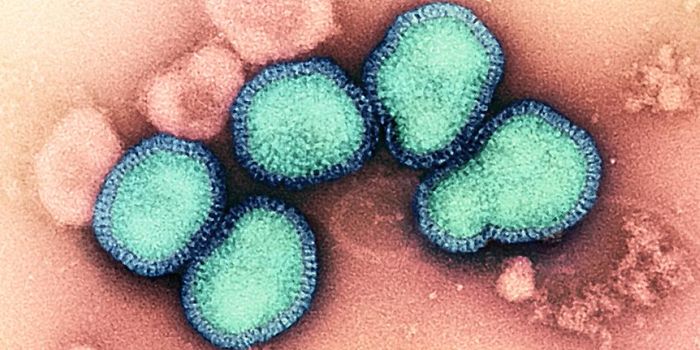Cataloging the Microbial Genes in the Human Microbiome
The human body carries a large community of microbes, and the ones living in our gastrointestinal tract exert a powerful influence on our biology. These microbes all have their own genomes, so we carry many more microbial genes in our bodies than genes of our own. Researchers at Harvard Medical School and Joslin Diabetes Center set out to learn more about the genes in the human gut and mouth microbiomes. Reporting in Cell Host & Microbe, the investigators found a massive number of unique genes. In the human mouth and gut microbiomes, there might be more microbial genes than stars in the observable universe, they estimated.
"Ours is a gateway study, the first step on a what will likely be a long journey toward understanding how differences in gene content drive microbial behavior and modify disease risk," said study first author Braden Tierney, a graduate candidate at Harvard Medical School.
Most research in this area has already focused on the aspects of the microbiome that are related to disease. But this work wanted to reach beyond disease-causing and -related microbes and their genes.
A bacterial species will only paint part of the picture when it comes to understanding how it's connected to a disease, cautioned the researchers. Microbes of the same strain might carry different genes, for example.
"Just like no two siblings are genetically identical, no two bacterial strains are genetically identical, either," said the co-senior study author Chirag Patel, assistant professor of biomedical informatics at Harvard Medical School's Blavatnik Institute. "Two members of the same bacterial strain could have markedly different genetic makeup, so information about bacterial species alone could mask critical differences that arise from genetic variation."
Knowing more about the many bacterial genes in the microbiome may one day help in the development of diagnostic tools, or beneficial probiotics, noted study senior co-author Alex Kostic, assistant professor of microbiology at Harvard Medical School and an investigator at the Joslin Diabetes Center. "Such narrowly targeted therapies would be based on the unique microbial genetic make-up of a person rather than on bacterial type alone," Kostic said.
This unique microbial composition might one day be useful as a kind of fingerprint as well, one within could inform clinicians about a patient’s health.
This work assessed around 3,500 human microbiome samples taken from the mouths of 1,400 people and the guts of 2,100. The researchers found about 46 million bacterial genes in these samples; there were about 24 million genes in the oral microbiome and roughly 22 million genes in the gut microbiome.
Of the 46 million or so microbial genes, it seems that an astonishing 23 million of them - more than half - only appeared once in the microbiomes. There were 11.8 million of these so-called singletons in the mouth, 12.6 million in the gut. The singletons also appeared to function differently from other genes, the researchers noted.
The microbiome is explained in the video.
Genes that were common to many microbes were performing basic duties for the microbe that enable them to function, like metabolism. Singletons, on the other hand, acted in more specialized ways. Some confer drug resistance, for example. The researchers suggested that they are parts of the microbial survival kit.
"Some of these unique genes appear to be important in solving evolutionary challenges," Tierney said. "If a microbe needs to become resistant to an antibiotic because of exposure to drugs or suddenly faces a new selective pressure, the singleton genes may be the wellspring of genetic diversity the microbe can pull from to adapt."
Microbes can share genes easily in a process called horizontal gene transfer. But that turned out to account for very few genes - under one and two percent in the oral and gut microbiome, respectively. The scientists hypothesized that environmental conditions are driving this diversity. Additional studies will have to investigate that idea.
The study estimated that there may be 232 million bacterial genes. But we may not ever know the exact number, said Patel.
"Whatever it may be, we hope that our catalog, along with a searchable web application, will have many practical uses and seed many directions of research in the field of host-microbe relationships."
The video above about the microbiome is from the NIH Director's Wednesday Afternoon Lecture Series on April 3, 2019.
Sources: AAAS/Eurekalert! via Harvard Medical School, Cell Host & Microbe









